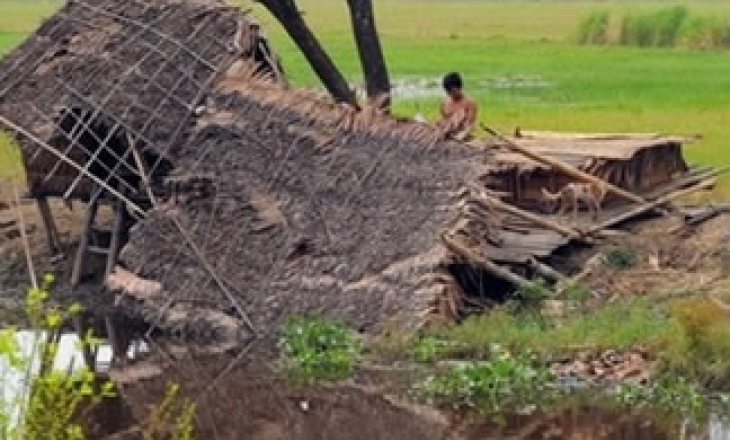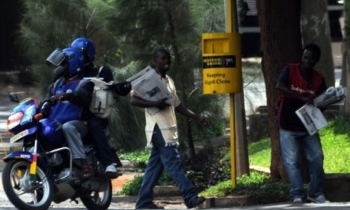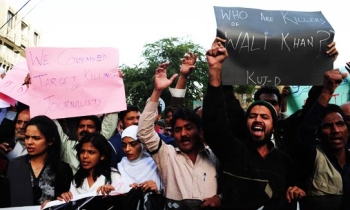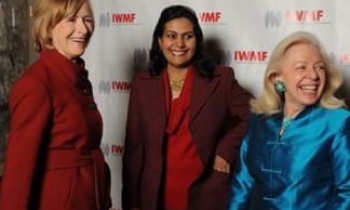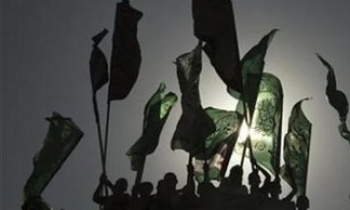Press freedom organisations have called on the Burmese government to allow journalists to travel to the country to report on the aftermath of Cyclone Nargis.
The New York-based Committee to Protect Journalists (CPJ) Wednesday expressed concern at reports that the country’s military government has refused to issue journalist visas to foreign reporters who have requested to enter the country to cover the recent disaster, which has killed and displaced hundreds of thousands of people across much of southern coastal Burma.
According to several journalists seeking to enter Burma from Thailand, the Burmese embassy in Bangkok has either refused to accept or failed to process visa requests submitted by a number of foreign journalists.
They asked not to be identified by name for fear of jeopardising their chances of eventually getting permission to enter Burma. The ruling junta has also refused to grant access to various foreign aid organisations that are seeking to provide assistance to remote disaster-hit areas.
“We call upon the Burmese authorities to lift its ban on journalist visas and allow both foreign and local journalists to report freely on the impact of Cyclone Nargis,” said Joel Simon, CPJ’s executive director. “Journalists have an important role to play in the emergency response to such natural disasters. Their reporting often uncovers previously undiscovered areas of need, and they help keep the international community of donors informed of conditions on the ground.”
“The authorities should respond to the disaster that has hit Burma by opening up and allowing the foreign press in,” Reporters sans Frontières (RSF) and the Burma Media Association (BMA) said. “It is shocking to see them refuse to grant press visas while appealing for international aid. In view of the emergency, the military government should also stop subjecting the Burmese media to prior censorship, as they can play a key role in helping the victims and reconstruction.”
Government-controlled broadcast media have in recent days shown images of the disaster and clips of government officials providing assistance to affected citizens. Due to government restrictions, only a handful of international news organizations have been allowed to base foreign reporters inside the country.
On Monday, the authorities did not allow BBC reporter Andrew Fardae to enter the country on a tourist visa. The government-run MRTV reported Wednesday that Fardae had been blacklisted after he entered and reported from the country on a tourist visa in June 2006 and September 2007, according to Mizzima News, an exile-run media group based in New Delhi.
In the wake of the cyclone, the main international wire services, including the Associated Press and Reuters, have been able to send limited reports out of the country through their Burmese reporters.
RSF/BMA also called on the government to explain the circumstances in which the security forces opened fire on inmates in Insein prison during the cyclone. Organisations based in Thailand saidf more than 30 prisoners were killed.

